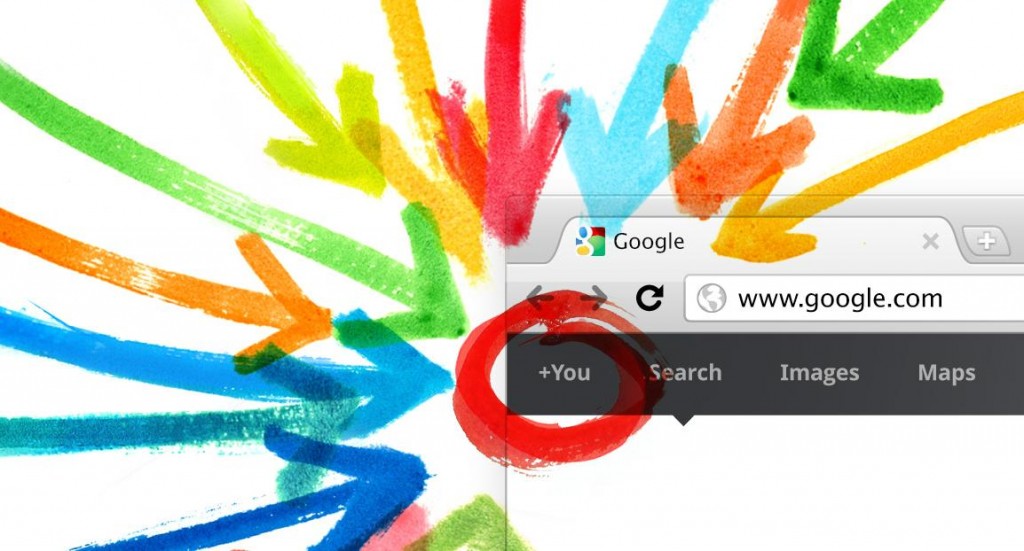 Today, Google announced a new service called “Google+” that explicitly attempts to replicate offline social norms onto an online platform. Besides the conceptual consistency between this goal and the concept of “augmented reality” that I write about so often, I also find the timing of the announcement interesting.
Today, Google announced a new service called “Google+” that explicitly attempts to replicate offline social norms onto an online platform. Besides the conceptual consistency between this goal and the concept of “augmented reality” that I write about so often, I also find the timing of the announcement interesting.
When Eric Schmidt was CEO of Google, I critiqued his statement that having multiple identities online shows “a lack of integrity.” Schmidt stepped down in April of this year and less than two months later Google announces Google+ (which is an umbrella term for a whole host of services centered on better replicating physical world social norms in a digital social media environment).
The service is brand new and invite-only so we can only speculate at this point what it will actually provide. However, the announcement of Google+ on the company’s official blog provides some interesting statements about privacy. The post is an implicit retraction of Schmidt’s insensitive statements and perhaps a lesson-learned from Google’s Buzz debacle that angered and even endangered many of its users. Further, much of the post is also a direct attack on the Facebook platform and its inability to reflect offline social norms that long-since predate the Web (e.g., the platform’s often incorrect usage of the term “friend”). Some quotes from the Google blog:
Today, the connections between people increasingly happen online. Yet the subtlety and substance of real-world interactions are lost in the rigidness of our online tools.
In this basic, human way, online sharing is awkward. Even broken. And we aim to fix it.
The problem is that today’s online services turn friendship into fast food—wrapping everyone in “friend” paper—and sharing really suffers
First, let’s acknowledge that the sappy text and cheesy videos that tug at our heartstrings really exist to make us feel good about a big, scary company with one ultimate goal: to make you share more. More sharing means more data which means more advertising-based profits for Google. This is a company that, like Facebook, is out to make a profit (for better or worse, depending on your perspective).
Second, as much as Google is attempting to build a service that reflects the enmeshment of the physical and digital worlds, they still push the outdated semantic habit of calling the physical world the “real” world. If anyone should know that online is “real”, it is Google (and, of course, the offline is increasingly virtual at the same time). Is Google not reading the Cyborgology blog?
Much, much more will need to be said about Google+ as details come forward and people start using the service (that is, if people start using the service; Google has a mixed track record when it comes to social services).

Comments 4
David Banks — June 28, 2011
Kind of surprised to see Google making the "real world" mistake.
They may not be reading Cyborgolgoy, but saying that Facebook is turning friendship into "Fast Food" makes it sound like they have been reading plenty of Ritzer.
Google+ Claims to Better Reflect Offline Social Norms » OWNI.eu, News, Augmented — June 30, 2011
[...] This article was originally published on Cyborgology [...]
8-8-11: The Ninth Circle of Google+ « Maryland Morning with Sheilah Kast — August 8, 2011
[...] has its own social network in a field trial right now: Google+. What will it mean for your increasingly integrated physical-digital [...]
kamera sistemleri — September 4, 2011
I have to admit that the idea of organising people into groups I find very compelling. Right at the moment I don't share my facebook page with business contacts. I suspect many others have the same issues that a facebook page is about your social life and you quite possibly don't want to mix that with your business life. I think there may be a cultural aspect to this as well. In the US I think there is less of a divide between private and business life, here in the UK I think we tend to have a firmer divide. Whether that's a good or bad thing who's to say but it does impact how we view applications like Facebook from a business standpoint.
I'm going to be signing up for a Google+ account because I think this is a bold experiment from Google and I'm fascinated to see how it turns out.
Best regards,